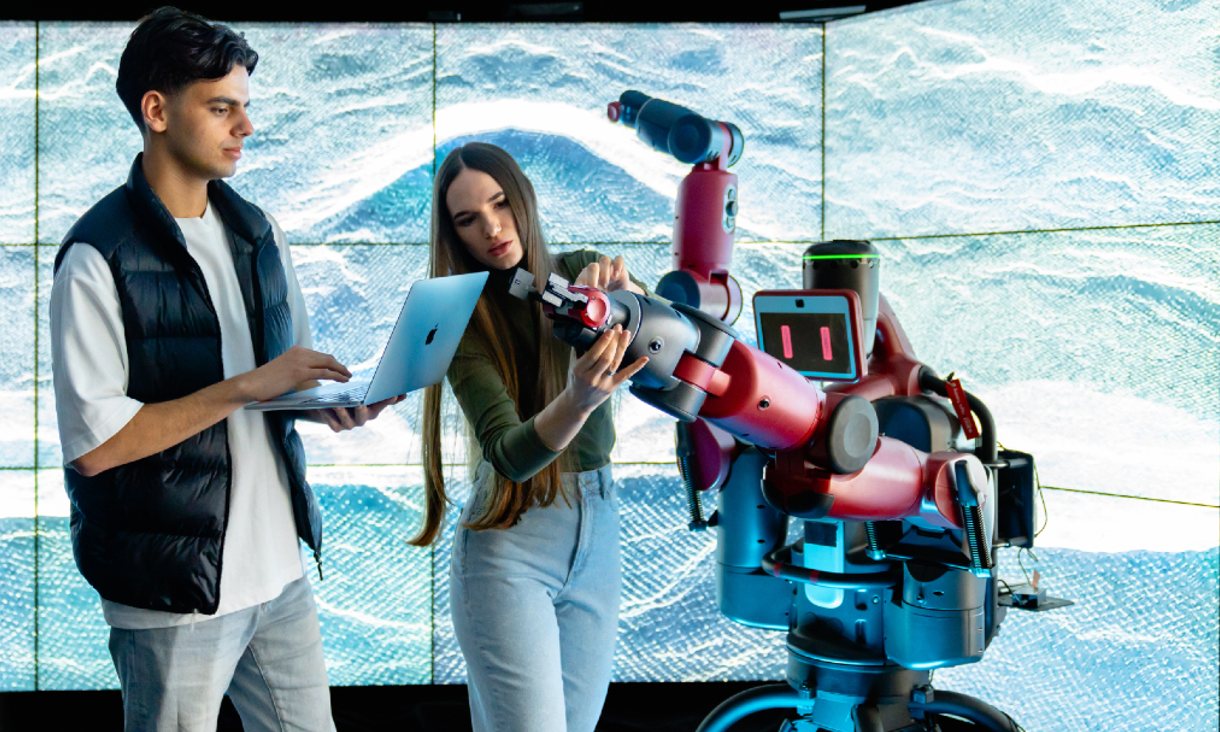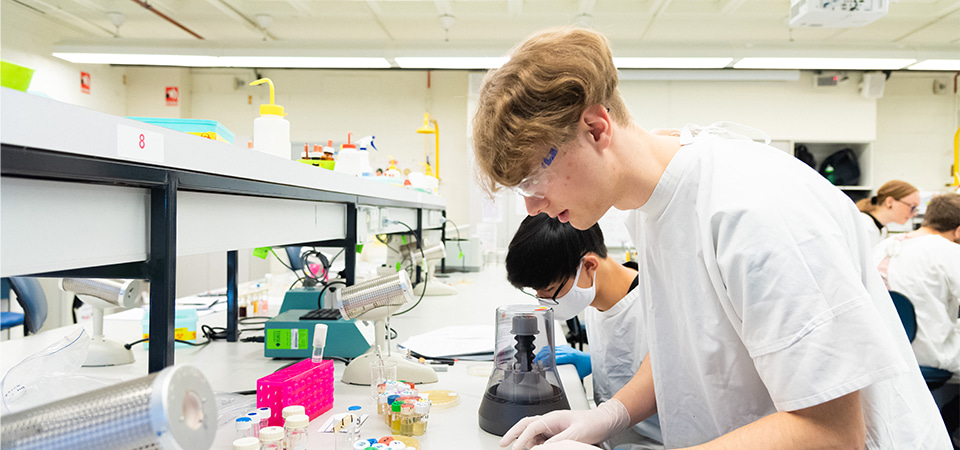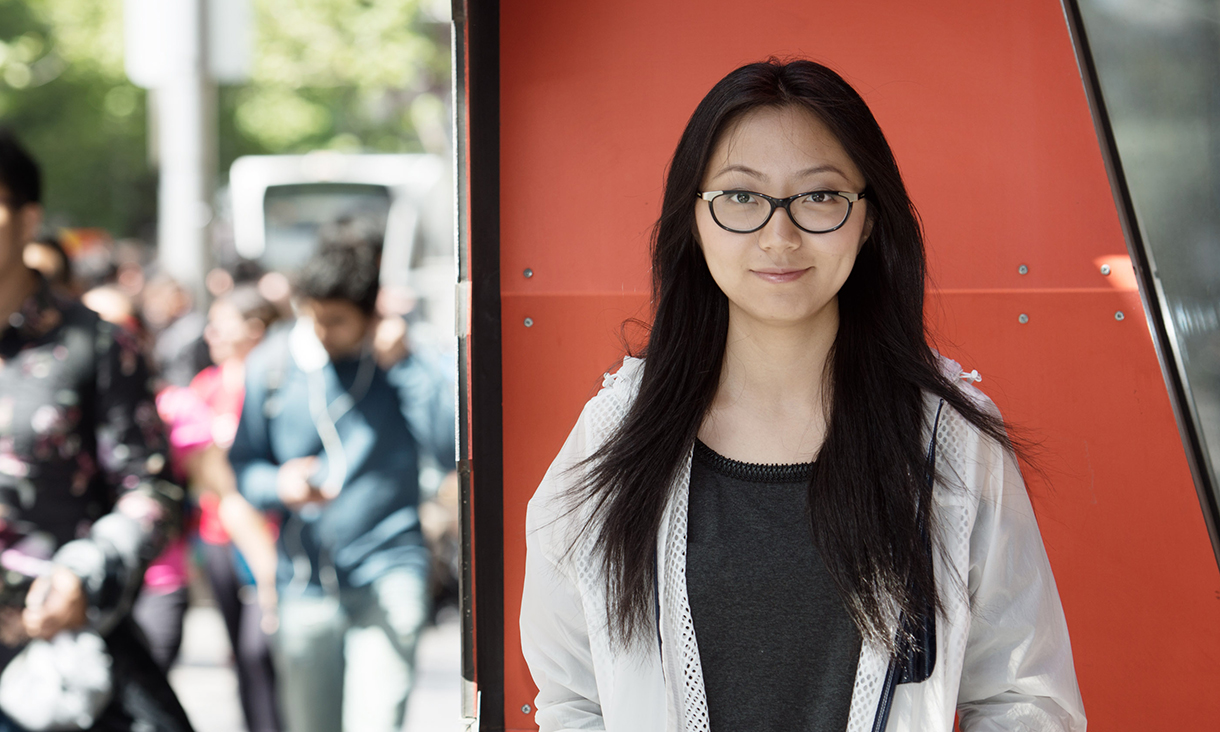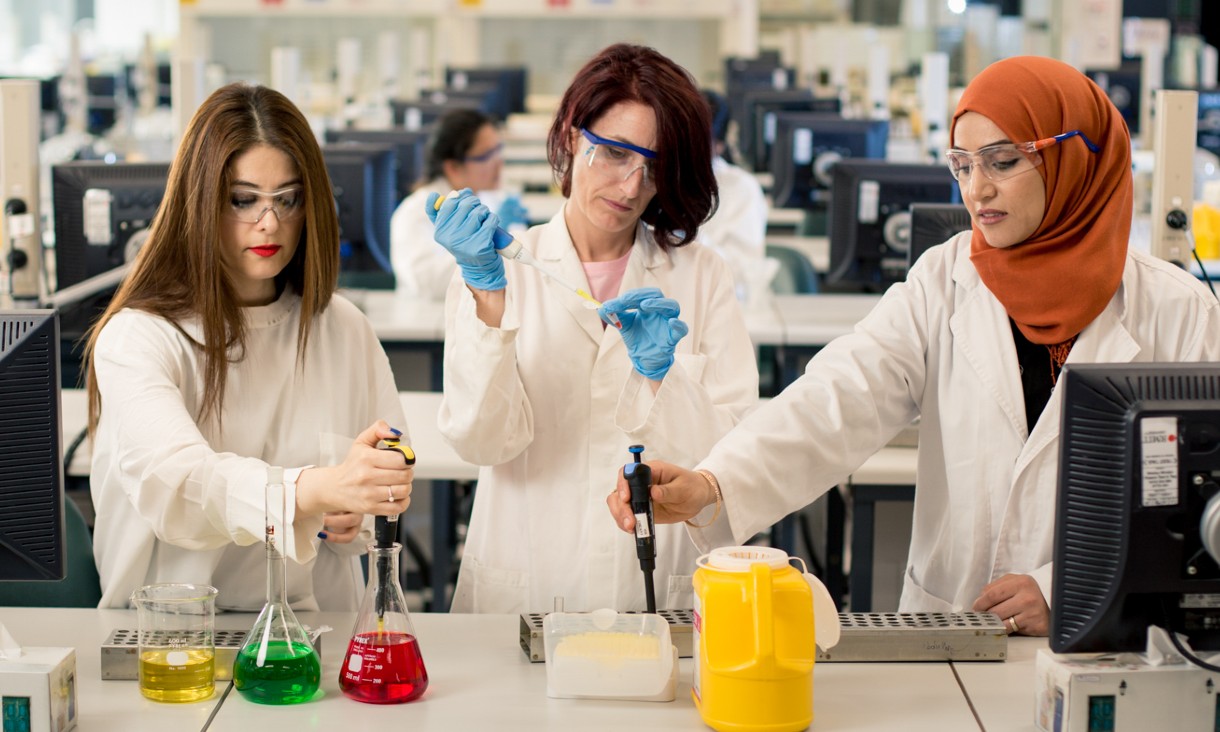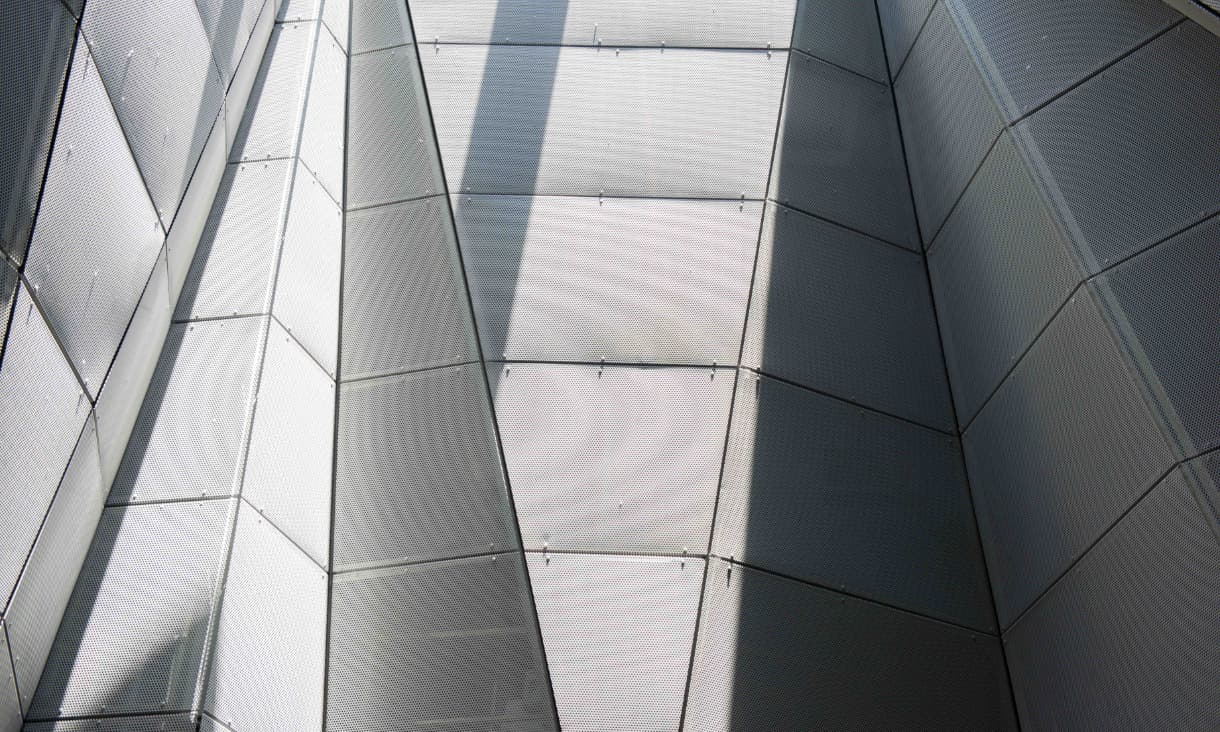This video features six students each talking individually to camera in various settings. Upbeat music plays throughout.
Duration: 1 minute 46 seconds
[Opening title]
RMIT University presents
[Screen title] Why Health and Biomedical Sciences?
Speaker 1: So, I was inspired, by spending a lot of time in hospital, and really enjoying the work environment that they had there.
Speaker 2: In high school I took biology as one of my subjects, and I fell in love with it.
Speaker 3: This whole system pumps blood to pretty much every cell in the body, so I started reading more about it.
Speaker 4: I want to make people feel better.
[Screen title] Why study at RMIT?
Speaker 1: I knew RMIT had a great program.
Speaker 5: It does provide many good extracurricular activities.
Speaker 6: Because it's a three year course, with a fourth year being a four-year internship.
Speaker 3: Pretty much meeting new people.
Speaker 4: It's just really nice to be part of a community and have all these friends.
[Screen title] What are the challenges?
Speaker 1: Staying on top of all the work.
Speaker 4: Just trying to organise my time better.
Speaker 6: Every single patient is different, you aren't gonna have the same patient.
Speaker 3: I'd say, time management; so managing between your schoolwork and your social-life, and at the same time getting enough rest.
[Screen title] After you graduate, what’s next?
Speaker 2: Hopefully I'd have an internship.
Speaker 6: I'd love to be in a private clinic in Radiography.
Speaker 4: In five years' time I'd want to, set up my own clinic.
Speaker 3: Probably become a doctor hopefully.
[Screen title] What’s your advice for future students?
Speaker 4: Find what suits you.
Speaker 6: It's all about you, trying to find out which is your path.
Speaker 1: Get to know everyone in your degree.
Speaker 5: Pick something you would love to do, and you'll never work a day in your life. It's very cliché, but it's actually true.
[Closing credits]
RMIT University logo
CRICOS provider number: 00122A

